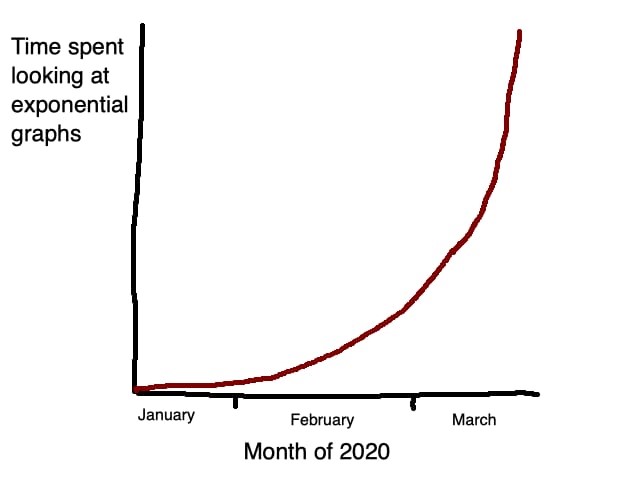|
|
 |
Not a Joking Matter
|
We've occasionally started the April 1 newsletter with some fake IT news, but this year it didn't feel appropriate. We have enough fake news as it is, some of which can be life-threatening. We urge our readers to stay safe, and to use technology wisely to maintain both their sanity and their professional activities. Still, it is human nature to seek some comic relief in the hardest situations, and we offer a visual joke at the end of this issue. Enjoy.
|
 |
Collaboration Interoperability
|
As we move massively to online meetings and document sharing, we're having to use many different solutions -- especially if we are not just interacting with our isolated colleagues, in which case we presumably follow some corporate standard, but also with family, friends, associations, mentors or "mentees," and more. On a given day, we may be using WebEx, Zoom, GoToMeeting, Skype, as well as DropBox, Google Docs, Microsoft Teams, and more. As a user, you have to conform to what your employer or the activity host has chosen -- you can't use your own preferred tool and work with others who made different choices. This, by the way, is the way e-mail worked in the 1980s. It's only by the mid-1990s that standard protocols (SMTP, MIME) allowed people using different mail clients to (almost) transparently exchange messages.
Interoperability standards are now needed for synchronous and asynchronous remote work tools. While Microsoft just announced the roll-out during this month of the ability to connect users of Teams or Skype for Business within an organization with external participants that use the consumer version of Skype, this is a minimal improvement and an obvious one, since the tools in question are owned by the same company.
While interoperability isn't solved, security is becoming more of a concern. In the last couple of days, vulnerabilities were exposed in Zoom, one of the most popular web conferencing tools (largely because of its ease of use). These include "Zoombombing," where hackers can join meetings by trying random 9-digit meeting IDs, then share objectionable content; misleading information about the type of encryption offered; the sharing of device data with Facebook; the default no-password setting; and more.
|
 |
Stanford Seminar on Knowledge Graphs
|
Stanford is live-streaming CS520, a colloquium on knowledge graphs. Each session, held on a Tuesday from 4:30 pm to 6:20 pm Pacific time (unfortunately in the middle of the night for Europe, but on Wednesday morning for people in Southeast Asia: 7:30 am in Beijing, 8:30 in Tokyo) consists of one or more presentations by experts in the field, followed by Q&A.
In brief, a knowledge graph is typically a set of "subject-predicate-object" triples that represents the edges of a graph, and are more suitable representations of knowledge than a classical database structure. For example, "Beethoven was born in Bonn" is a fact in a KG, "Bonn is a city in Germany" is another fact, thus a query "whom do we know who was born in Germany?" will return a list of names including Beethoven. Some KGs, such as Wikidata, contain millions of such nodes and edges.
The first session took place yesterday. The actual materials will only be shared with Stanford students, but a capture of slides, with some added notes, is available by emailing Claude Baudoin. The next sessions will take place each Tuesday from April 7 to June 2.
|
 |
Grid Computing for Coronavirus Research
|
Folding@Home is what was once called a "grid computing" project, in which an application harnesses the unused cycles on your PC (e.g., while you sleep), requesting tasks from and returning results to a remote server, providing more aggregate computing power than a supercomputer. One such famous project is SETI@Home (Search for Extraterrestrial Intelligence). Folding@Home targets a challenge closer to home: searching for protein chains that, when folded (as proteins like to do) exhibit promising medical properties. Around the world, more than 2.5 million users currently contribute to this initiative.
Scientists have been launching Folding@Home projects to model receptors and potential inhibitors of the SARS-CoV-2 virus. To make your own contribution, visit Folding@Home, install the application, and leave your PC, Mac, or Linux server powered and connected as often as you can (if you worry about electricity costs, on a normal laptop it's like leaving one extra light bulb on).
|
 |
Seen Recently... |
 |
|
| |
|